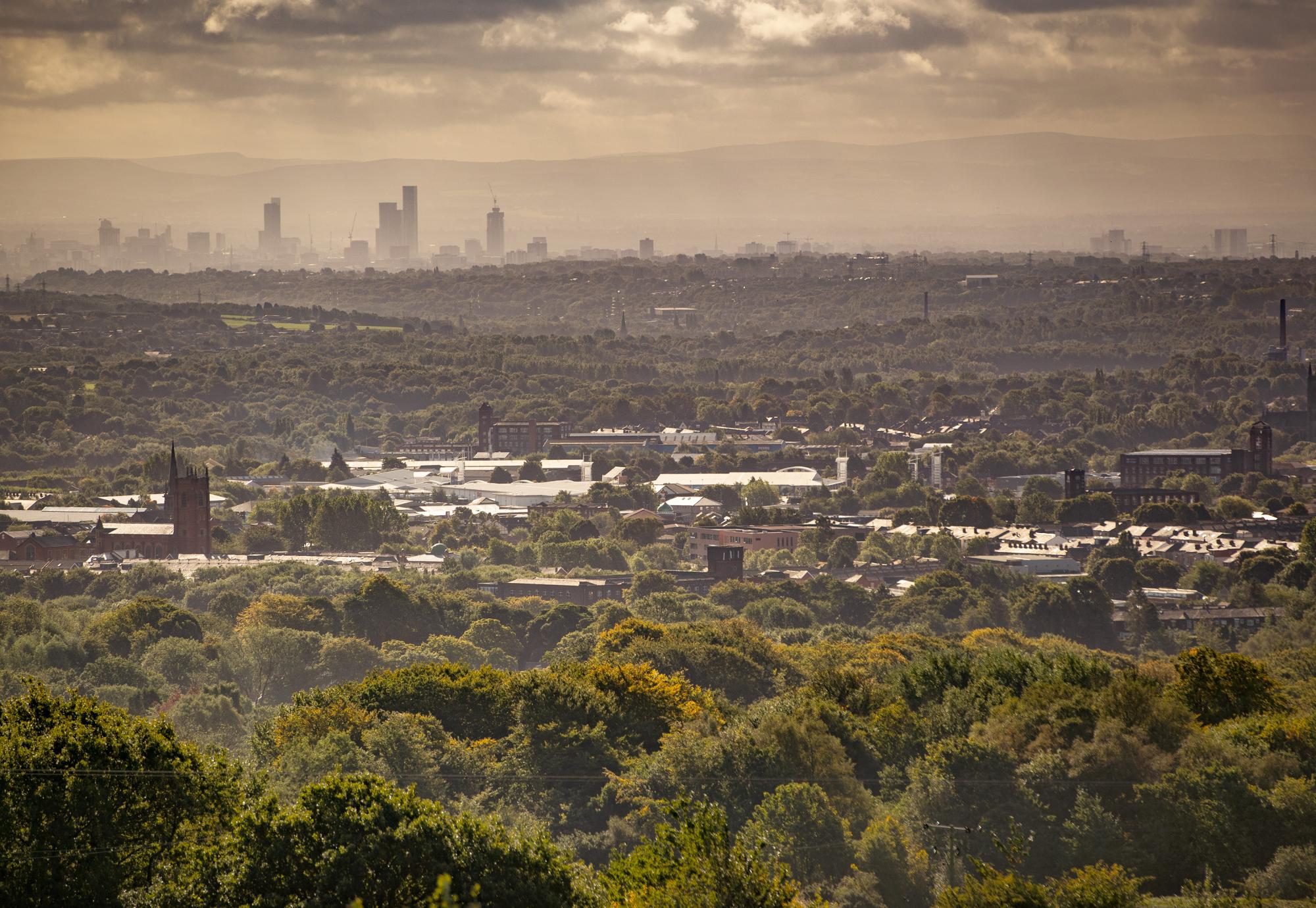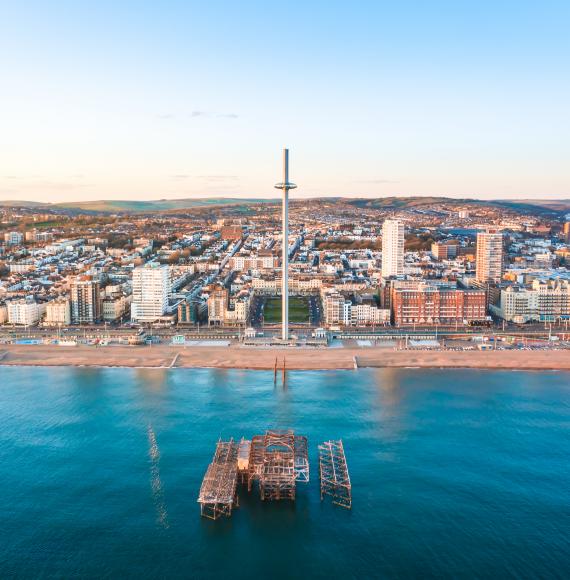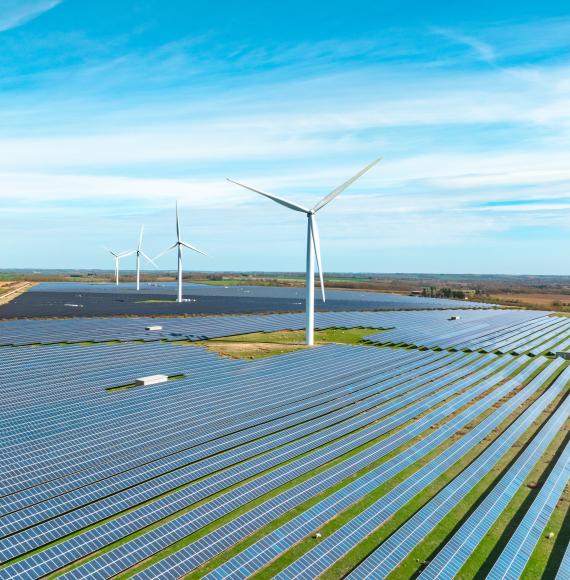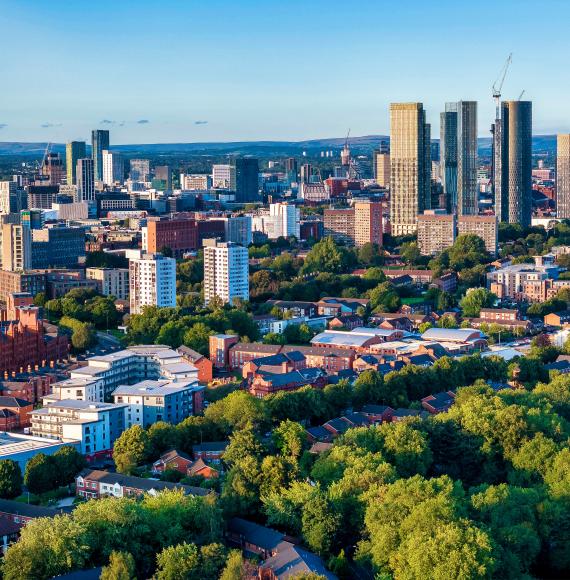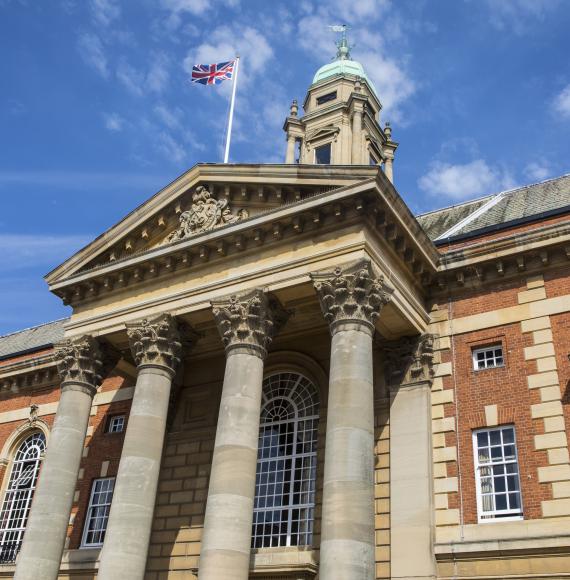The Greater Manchester Combined Authority (GMCA) has published its final Clean Air Plan to kick-start the city region's green ‘revolution’, helping to tackle the problem of air pollution, which contributes towards at least 1,200 deaths per year in the area.
GMCA has secured over £120m in government funding to support local businesses upgrade to cleaner, compliant vehicles so they can travel in a GM-wide Clean Air Zone without incurring a daily charge.
Applications for funding support will open from November and this will be essential to support impacted vehicle owners to upgrade, while facing the economic impact of the Covid-19 pandemic.
In light of feedback following last year’s eight-week consultation on the plans and the impact of Covid-19, particularly on small businesses, GM-registered taxi/private hire owners and LGV owners will be given more time, money and options to upgrade.
This includes temporary exemptions for an additional year (until 31 May 2023) for all hackney and private hire vehicles (PHV) licensed by one of GM’s ten councils.
Vans, minibuses, GM-registered coaches and wheelchair accessible taxis were already exempt from daily charges until 2023.
Following consultation and protracted negotiations with the government, GMCA has increased funding support per vehicle for HGVs, coaches, vans, GM Hackney cabs and PHVs.
Vans can now access up to £4.5k towards the replacement of a vehicle, £1k more than initially proposed and GM Hackney Cabs can get up to £10k.
HGVs can now get up to £12k towards a replacement, nearly three times more than was initially offered, and coaches are now eligible for £32k.
The city region also today announced that a bike-share company has been selected as the delivery partner to design, install and operate a 24/7, public cycle hire scheme made up of an initial 1,500 bikes and e-bikes.
They will be based at over 200 new cycle hire docking stations across Manchester, Salford and Trafford.
Commenting, Mayor of Greater Manchester, Andy Burnham said:
“Greater Manchester were the pioneers of the industrial revolution, now we are leading a green revolution, backed with over £120m that we’ve secured to hand over to businesses to support making their vehicles compliant.
“We listened hard to what business owners wanted and, as a result, taxi drivers are being given more time, more funding and more options.
This is part of our wider commitment to put GM-licensed hackney and private hire drivers first and to lobby government to give us the powers to ensure that only locally licensed drivers are able to operate here.
“The fact is that air pollution is not a problem that is going to go away on its own.
“Not only has our plan been directed by national government, we’ve taken this seriously and fought to get a plan which has the right funding support for residents and to protect those most vulnerable, as well as our trade and businesses.
“This plan will also have major health and wellbeing benefits for people living near motorways or major roads as there will be less polluting vehicles and HGVs using them.
“Our Clean Air Zone is only one piece of the jigsaw. We’re also fully integrating our public transport system, the Bee Network, and building the UK’s largest cycling and walking network.
“Our cycle hire will be one of the largest docked systems outside London and I cannot wait to use the new bikes myself as a way to get from A to B.
“We’re making huge strides towards our plans to build back greener and be carbon neutral by 2038.”
GMCA’s Lead for Clean Air, Councillor Andrew Western added:
“We want Greater Manchester to be a healthy, sustainable and happy place to grow up, get on and get old and we can’t afford to be complacent about this globally significant issue.
“Over the past year, we’ve rightly focused on supporting our people and our businesses through the terrible impacts of the pandemic.
“As we now look to recover, and after considering the impact of Covid-19, we want to continue helping those most affected, including small businesses and taxi drivers, by giving them more time as we look to build back better and greener with certainty.”
Leaders from all ten GM local authorities will be asked to endorse the city-region's Clean Air Plan, including the launch of a GM-wide Clean Air Zone on 30 May 2022, at the next GMCA meeting on 25 June 2021.
This will be followed by approval by individual councils at their meetings.
The ten GM councils are under direction from the government to introduce a category C charging Clean Air Zone, including commercial and passenger vehicles, but not private cars
This is in order to secure compliance with nitrogen dioxide (NO2) legal limits on local roads in the shortest possible time and by 2024 at the latest.
A Clean Air GM report has confirmed that while the Covid-19 pandemic led to brief air quality improvements, modelling shows it is not expected to lead to long-term reductions in roadside pollution without implementing a Clean Air Zone.
The government provided a funding award of £14.7m to retrofit buses running services in GM that have older engines and do not meet the Clean Air Zone’s emission standard.
Around 18 bus operators have so far submitted applications for retrofit funding of 750 buses, worth nearly £12m.
The retrofitting has now started, with seven operators having started retrofitting their vehicles.
The support package will help sole traders and the voluntary sector to upgrade non-compliant commercial vehicles and avoid a daily charge, with the funding available from November.
This includes:
- Clean Commercial Vehicle Fund: £87.9m for vans, HGVs, coaches and minibuses
- Clean Taxi Fund: £21.4m for GM-licensed taxi and private hire vehicle owners, drivers and operators to switch to cleaner vehicles
- Bus Retrofit Fund: £14.7m to retrofit non-compliant buses running services in GM
- Bus Replacement Fund: £3.2m to support replacement of non-compliant buses that cannot be retrofitted
GMCA has also secured funding for over 30 taxi-only electric vehicle (EV) charging points at strategic sites across the city-region.
There are currently around 360 publicly accessible EV charging devices in Greater Manchester with around 700 connectors.
A new Electric Vehicle Charging Infrastructure Strategy, to be published in July, will set out ambitious plans, so that by 2030, anyone who chooses to travel by car or van will be able to confidently drive an EV knowing that they can recharge it quickly and conveniently across the region.
Following the clean air consultation and taking feedback into account, the Clean Air Zone boundary has minimal changes and will cover the whole of Greater Manchester, excluding the Strategic Road Network (SRN), which is managed by Highways England.
However, after years of hard work and following an assessment, the government have agreed to include sections of the A628/A57 on the SRN that pass through the villages of Hollingworth and Mottram in the zone, helping to protect residents’ health along what have been some of the most polluted stretches of road in GM.
The daily charges also remain the same, as lower charges mean more are likely to 'stay and pay', which imposes costs onto businesses without delivering air quality benefits.
PSE will be hosting a Public Sector Decarbonisation event on 9 September. Join us for the full day event by registering here.

